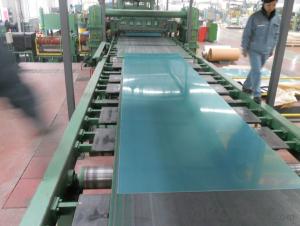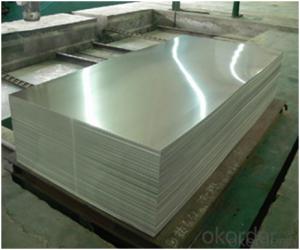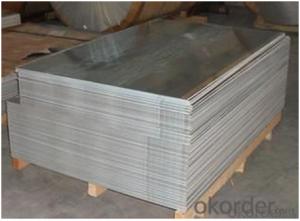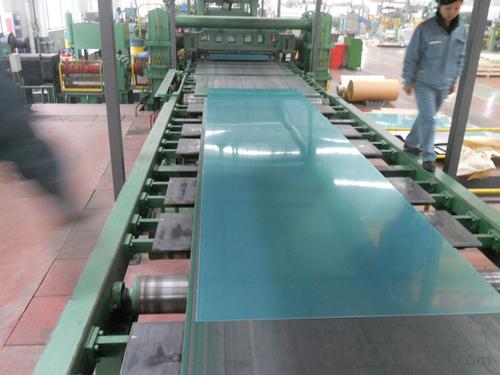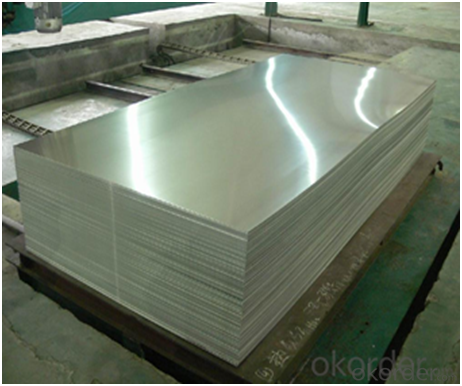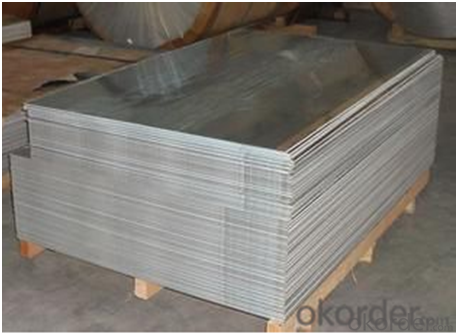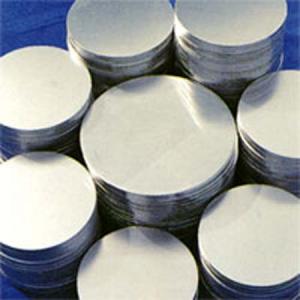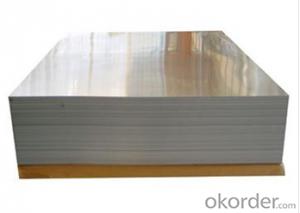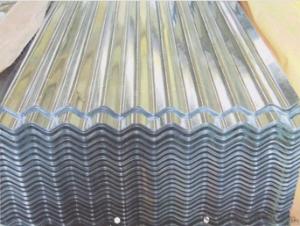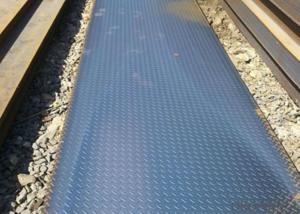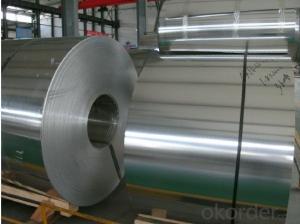Small Aluminum Coils Factory Directly Wholesale Aluminum Sheets
- Loading Port:
- Shanghai
- Payment Terms:
- TT OR LC
- Min Order Qty:
- 1000 m.t.
- Supply Capability:
- 100000 m.t./month
OKorder Service Pledge
OKorder Financial Service
You Might Also Like
Specification
1.Structure of Aluminum Sheets 1xxx C.C Quality Description
Aluminum sheets 1xxx C.C quality is cut from aluminum coils 1xxx. The aluminum content of aluminum sheets 1xxx C.C quality is 99% at least. It has great ductility, heat conductivity, anti-corrosion and moisture resistance properties.
Aluminum sheets 1xxx C.C quality is widely used for electronics, instruments, lighting decoration, packing industry, house decoration, curtain wall, honeycomb-core panel, sandwich panel, aluminum composite panel and aluminum composite pipes.
2.Main Features of the Aluminum Sheets 1xxx C.C Quality
• Superior quality of raw material
• Reasonable and stable chemical composition
• Accurate tolerance
• Goode mechanical property
3.Aluminum Sheets 1xxx C.C Quality Images
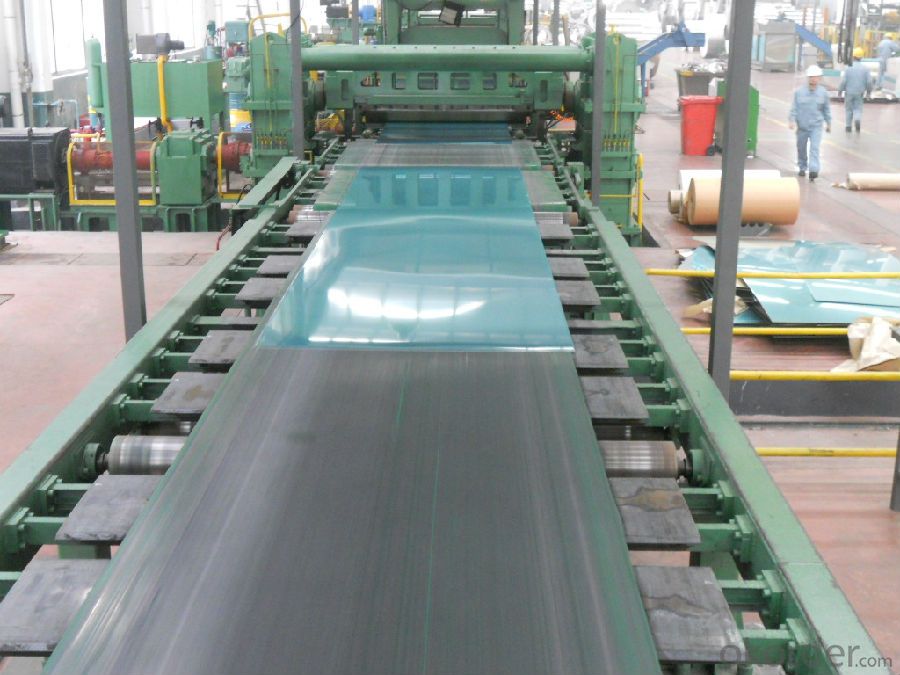
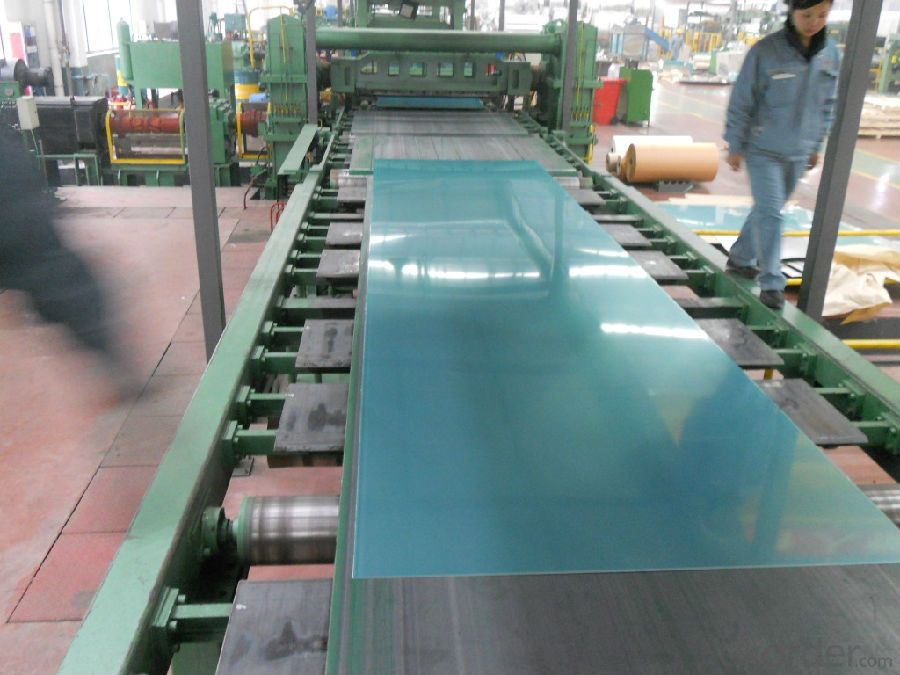
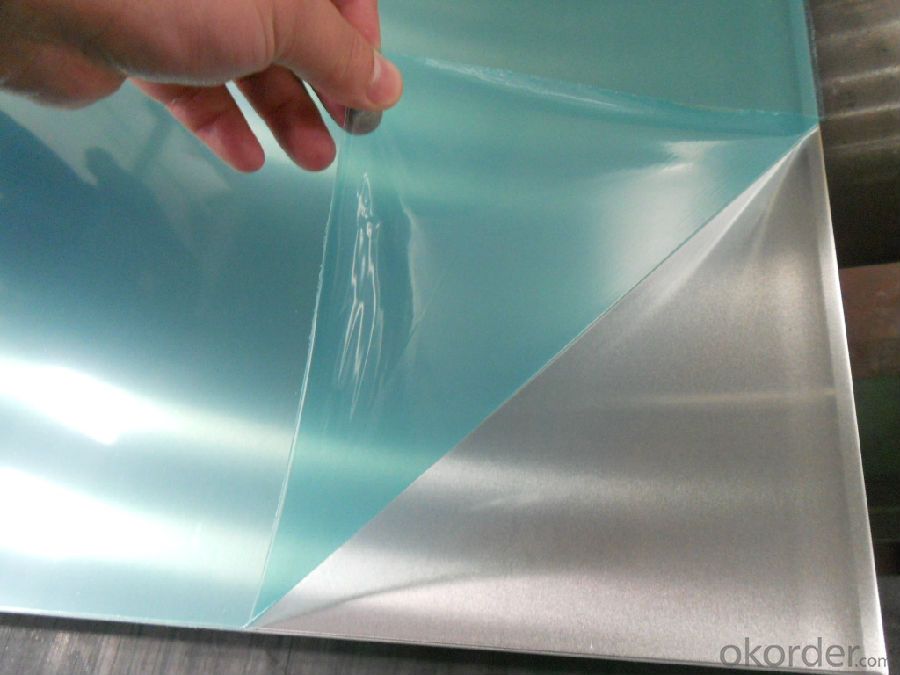
4.Aluminum Sheets 1xxx C.C Quality Specification
Alloy | AA1xxx (AA1050, AA1060, AA1070, AA1100 etc. |
Temper | H14, H16, H18, H22, H24, H26, H32, O/F |
Thickness | 0.2mm -- 100mm |
Width | 30mm -- 1700mm |
Standard | GB/T 3880-2006,EN,ASTM,JIS |
5. FAQ of Aluminum Sheets 1xxx C.C Quality
A.How to guarantee the quality?
Customers are welcome to our mill to visit and check the products. Besides, we can arrange a third party to test the aluminum sheets 1xxx C.C quality products.
B.When will you deliver the products?
The aluminum aluminum sheets 1xxx C.C quality will be delivered within 35 days after receiving advanced payment or original L/C.
C.What is the MOQ?
B. Now which countries do you export your goods?
Now we export to South East Asia,Africa, North America,South America ect.
- Q: What are the proper storage methods to maintain the quality of aluminum coil for future use?
- <p>To store aluminum coil for future use, ensure it is kept in a cool, dry place away from direct sunlight and moisture. Stack the coils on flat, level surfaces with appropriate padding to prevent damage. Avoid stacking with other metals to prevent galvanic corrosion. Use clean, dry hands or gloves when handling to prevent oil and dirt from contaminating the surface. Store in a controlled environment with a relative humidity below 65% and a temperature between 32掳F to 90掳F (0掳C to 32掳C). Regularly inspect the coils for any signs of corrosion or damage.</p>
- Q: Aluminum reacts with water so why is it used in buildings and cooking??Some help by today would be good!! :DThanxx
- Aluminum reacts with water under certain conditions, but cookware does not usually present any of those conditions. Aluminum cookware takes advantage of the oxidizing process, which creates a natural protective layer over the aluminum. It doesn't react with water in the same way that chemical equations say it will because cooking surfaces are designed to maximize the oxidation effect. This is basically the same reason why aluminum foil doesn't react in water. In building materials, it's less about exposure to the elements and more about how cheap and lightweight it is. Many building materials are aluminum alloys, which makes them more susceptible to corrosion than purer aluminum, and the use of aluminium roofing material, though fairly corrosion-resistant by itself (for the same reasons as cookware), gets compromised by the proximity of other metals used in construction, like non-stainless steel nails and screws, for example, or copper pipes without insulation. The trade-off is that aluminium alloys hold their shape better and have greater tensile strength, some of which approach that of steel.
- Q: This question asks about the common applications of aluminum coil in everyday life.
- <p>Aluminum coil is widely used in daily life due to its lightweight, corrosion resistance, and thermal conductivity. It's commonly used in construction for roofing and siding, in the automotive industry for car parts, and in the packaging industry for food and beverage cans. It's also used in electrical applications like transformers and wiring due to its good conductivity. In the kitchen, aluminum foil is used for cooking and food storage, and in the HVAC industry for heat exchangers and ductwork. Its versatility makes aluminum coil an essential material in many industries and everyday applications.</p>
- Q: What are the strength properties of aluminum coils?
- Aluminum coils possess several strength properties that make them highly desirable in various applications. Firstly, aluminum has a high strength-to-weight ratio, which means that it is lightweight while still maintaining good strength. This makes aluminum coils ideal for industries where weight reduction is important, such as in the automotive and aerospace sectors. Additionally, aluminum coils offer excellent corrosion resistance, even when exposed to harsh environments. This corrosion resistance is due to the formation of a protective oxide layer on the surface of the aluminum, which helps to prevent further degradation. Moreover, aluminum coils display good formability and ductility, allowing them to be easily shaped and formed into different products without compromising their structural integrity. This makes them suitable for various manufacturing processes, including rolling, bending, and stamping. Furthermore, aluminum coils possess good electrical and thermal conductivity, making them ideal for applications requiring efficient heat transfer or electrical conductivity, such as in heat exchangers or electrical wiring. In summary, the strength properties of aluminum coils include high strength-to-weight ratio, excellent corrosion resistance, good formability, and ductility, as well as efficient electrical and thermal conductivity. These characteristics contribute to the versatility and widespread use of aluminum coils in numerous industries.
- Q: Are aluminum coils suitable for interior decorative applications?
- Yes, aluminum coils are suitable for interior decorative applications. Aluminum is a lightweight and versatile material that can be easily shaped into various forms, making it ideal for decorative purposes. It also comes in a wide range of finishes, colors, and patterns, allowing for endless design possibilities. Additionally, aluminum is highly durable and resistant to corrosion, ensuring that it will maintain its aesthetic appeal over time. Moreover, aluminum is a sustainable material, as it can be recycled indefinitely, making it an environmentally friendly choice for interior decorations. Overall, aluminum coils provide a cost-effective and aesthetically pleasing option for interior decorative applications.
- Q: What are the common testing methods for aluminum coils?
- There are several common testing methods for aluminum coils that are used to ensure their quality and performance. These methods include: 1. Visual inspection: This involves a thorough examination of the coils for any visible defects such as dents, scratches, or surface irregularities. Visual inspection is a basic and initial step in the testing process. 2. Dimensional measurement: This method involves measuring the dimensions of the aluminum coils to ensure they meet the specified requirements. This includes measuring the length, width, and thickness of the coils. 3. Tensile testing: Tensile testing is performed to assess the mechanical properties of the aluminum coils, such as their strength and elasticity. This test involves applying a tensile force to a sample of the coil until it breaks or deforms, allowing for the determination of its tensile strength. 4. Hardness testing: The hardness of aluminum coils is an important factor in determining their suitability for specific applications. Various hardness testing methods, such as Rockwell or Brinell hardness tests, can be used to measure the resistance of the coil's surface to indentation or scratching. 5. Chemical composition analysis: This method involves analyzing the chemical composition of the aluminum coil to ensure it meets the required specifications. Common techniques used for this analysis include spectroscopy or X-ray fluorescence (XRF) analysis. 6. Corrosion resistance testing: Aluminum coils are often exposed to harsh environmental conditions, so assessing their resistance to corrosion is crucial. This can be done through various tests like salt spray testing or electrochemical impedance spectroscopy (EIS) to determine the coil's ability to withstand corrosion. 7. Coating quality assessment: If the aluminum coil is coated with a protective layer, testing methods such as adhesion testing, coating thickness measurement, or impact resistance testing can be used to ensure the quality and durability of the coating. These are some of the most common testing methods employed for aluminum coils. By conducting these tests, manufacturers can ensure that the coils meet the required standards and perform optimally in their intended applications.
- Q: What are the precautions to be taken while handling aluminum coils?
- When handling aluminum coils, there are several precautions that should be taken to ensure safety and prevent any potential accidents or damage. Firstly, it is important to wear appropriate personal protective equipment (PPE) such as gloves, safety goggles, and protective clothing. This will help protect against cuts, abrasions, and chemical exposure. Secondly, aluminum coils should be handled with care to prevent any damage or deformation. Avoid dropping or mishandling the coils, as this can affect their structural integrity and potentially cause injuries. Additionally, it is crucial to be aware of the weight of the coils and lift them correctly using proper lifting techniques. If the coils are too heavy to lift safely, it is important to seek assistance or use mechanical lifting equipment to avoid strain or injury. Furthermore, aluminum coils should be stored and transported in a secure and stable manner. They should be placed on a flat, even surface and properly secured to prevent any movement or rolling. When transporting, ensure that the coils are adequately protected from any potential damage or external forces. It is also important to keep the work area clean and free from any clutter or obstacles that may cause accidents. Any spills or leaks should be promptly cleaned up to prevent slips or falls. Lastly, it is crucial to follow all safety guidelines and procedures provided by the manufacturer or employer. This includes understanding the specific properties and hazards associated with aluminum coils and following any recommended handling or storage instructions. By following these precautions, individuals can minimize the risk of accidents, injuries, and damage while handling aluminum coils.
- Q: Is it easy to bend aluminum coils and what factors affect their flexibility?
- <p>Aluminum coils are relatively easy to bend due to their malleability and flexibility. However, the ease of bending can vary depending on the alloy type, thickness, and temper of the aluminum. Thinner gauges and softer tempers are generally easier to bend. The process can be done manually or with machinery, and it's important to consider the coil's width and the radius of the bend to avoid cracking or other damage.</p>
- Q: What are the common surface finishes for aluminum coils in the aerospace industry?
- The common surface finishes for aluminum coils in the aerospace industry include mill finish, anodized finish, and painted finish.
- Q: What are the common industry standards for aluminum coil specifications?
- The common industry standards for aluminum coil specifications include the Aluminum Association (AA) standards, ASTM International specifications, and the European Standards (EN) for aluminum coils. These standards typically cover dimensions, tolerances, mechanical properties, chemical composition, surface finish, and other technical requirements for aluminum coils used in various industries such as construction, automotive, aerospace, and electrical. Compliance with these standards ensures consistent quality and compatibility with industry applications.
Send your message to us
Small Aluminum Coils Factory Directly Wholesale Aluminum Sheets
- Loading Port:
- Shanghai
- Payment Terms:
- TT OR LC
- Min Order Qty:
- 1000 m.t.
- Supply Capability:
- 100000 m.t./month
OKorder Service Pledge
OKorder Financial Service
Similar products
Hot products
Hot Searches
Related keywords
